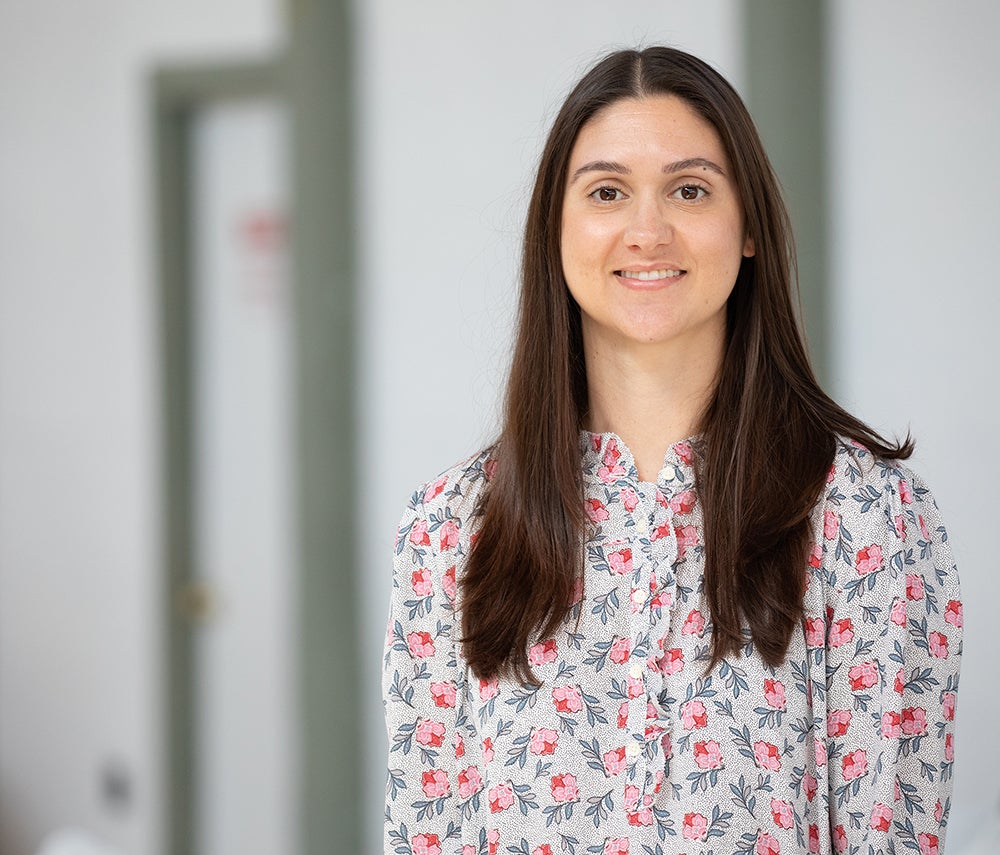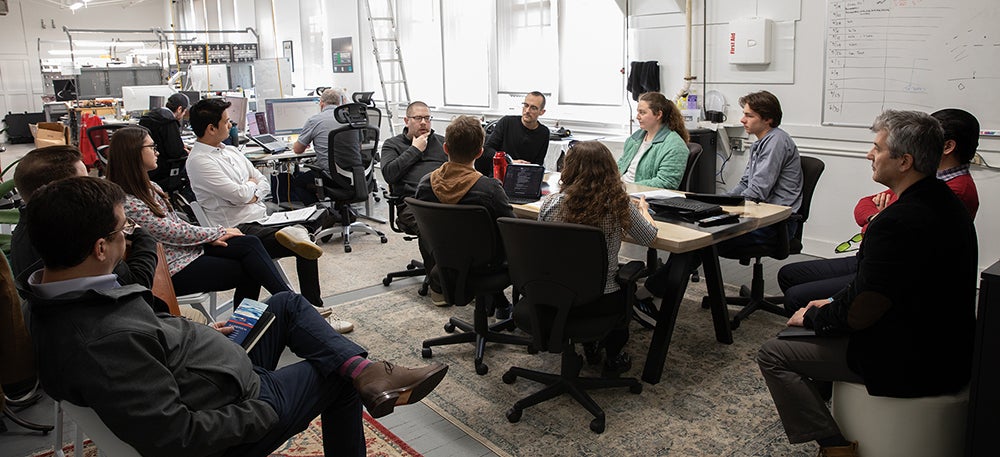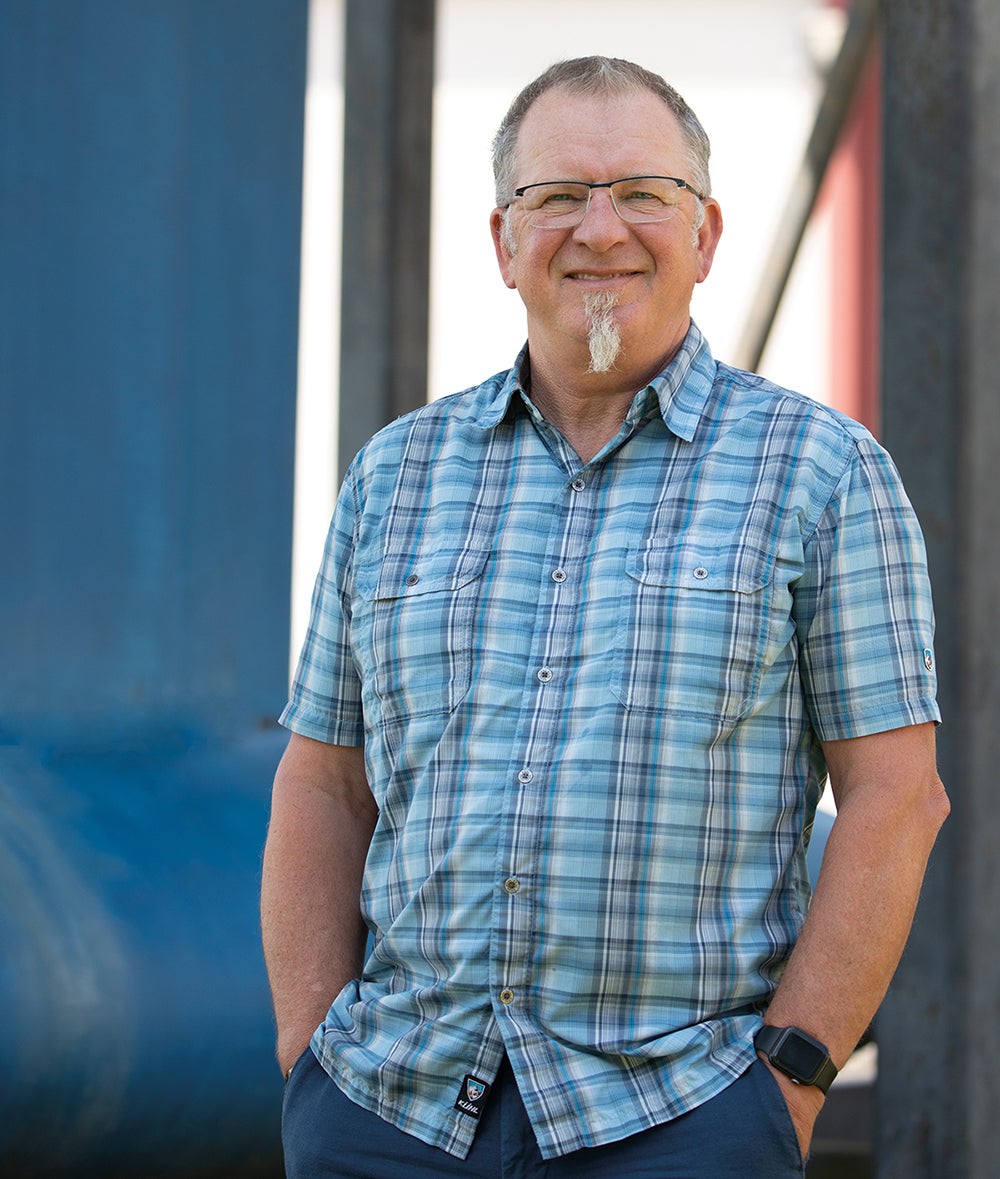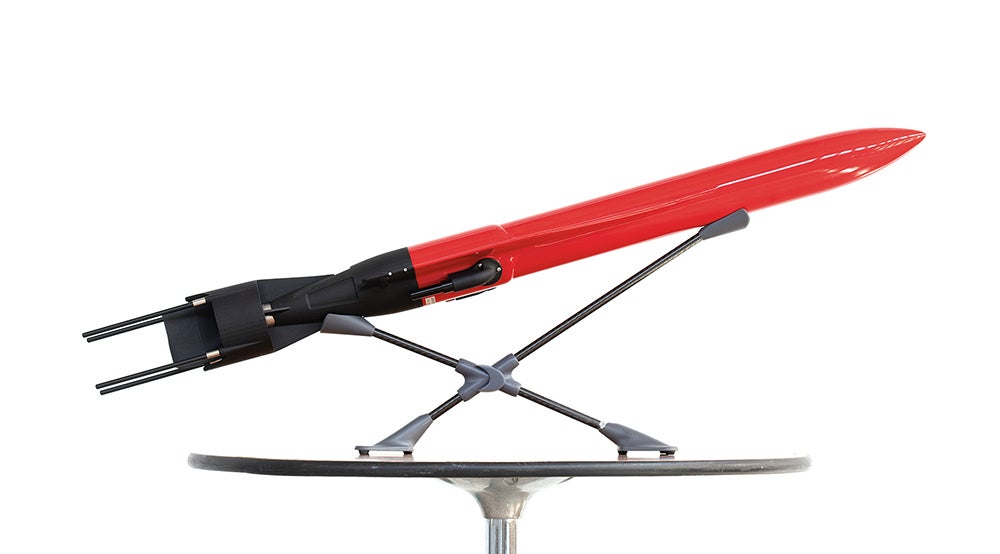Rhode Island has been a vital manufacturing center for the defense industry for more than 150 years — ever since the U.S. Naval Torpedo Station (now the Naval Undersea Warfare Center) and Electric Boat were founded in the 1800s. Since then, the Ocean State has spawned hundreds of companies contributing to our nation’s naval and military superiority. However, it’s not always easy for small businesses to break into the industry and manufacture products at scale and with the proper security.
To fill those gaps, the URI Research Foundation has helped launch a new program, RIMADE (Rhode Island Manufacturing to Accelerate the Defense Ecosystem), which provides funding and expertise of URI faculty and students to advise companies on what they need to succeed.
“The whole goal of the program is to strengthen and expand Rhode Island’s defense industrial base,” says Taylor Greene, program manager with Polaris MEP (Manufacturing Extension Partnership), a nonprofit business unit of the URI Research Foundation that administers the program. “We do that by modernizing the local supply chain.”

Polaris MEP puts together teams of URI faculty and students who carry out assessments of small- to medium-sized businesses in three areas: automation and robotics, cyber resiliency, and risk mitigation.
Once they identify the needs of the companies, the program provides recommendation and guidance, as well as funding up to $50,000 to implement projects.
“Rhode Island manufacturers supporting the defense supply chain have seen an increase in demand and expressed a need for automation and data analytics,” says URI Research Foundation Executive Director Christian Cowan. “We are thrilled to provide this new program to support technology-based programs that will support our ecosystem and national defense.”
“Rhode Island manufacturers supporting the defense supply chain have seen an increase in demand and expressed a need for automation and data analytics.”Christian Cowan, URI Research Foundation Executive Director
For automation and robotics, Polaris MEP has partnered with the Pittsburgh-based ARM Institute (Advanced Robotics for Manufacturing) to help identify areas where robotics makes sense.
“We’re all well aware of staffing shortages in some of these manufacturing companies, so they look at areas where it might make sense to automate a process and have a machine take on some of that manual labor,” says Greene.
In the area of cyber resiliency, the project has partnered with Chicago-based The Digital Manufacturing and Cybersecurity Institute to help companies come into compliance with the stringent standards required by the Department of Defense (DoD) to safeguard data and protect against malware.

“It’s a good way to pull expertise from outside of the state from two organizations well-known for their proficiency in these areas and to impart some of that knowledge on our teams that will then help take these local companies to the next level,” says Erik Brine, URI Research Foundation director of defense sector R&D initiatives and operations.
When it comes to risk management, URI faculty from the College of Business, including professors Anis Triki, Devendra Kale, and Mehmet Gokhan Yalcin, along with PhD candidate Muhammad Hasan Ashraf, are able to advise companies on supply chain management, workforce development, and employee retention.
“Having the infrastructure in place that allows us to create an integrated flow so we could work more efficiently would be incredibly valuable.”Ian Estaphan Owen
Launching this spring, RIMADE has worked with three companies, Jaia Robotics, which builds micro-sized underwater robots; Nautilus Defense, which creates textile-based wearable and underwater sensors; and Electro Standards Laboratories, which engineers electronic components for network communication, data acquisition, and power electronics.
For Jaia, founded in Newport, RI, in 2020, the expertise RIMADE provides will be crucial in tightening cybersecurity to meet government standards, says co-founder and CEO Ian Estaphan Owen.
“As we get more embedded in DoD work, we need to improve our security systems,” he says. “So, having a baseline of where we are now and a roadmap of what we need to do to create a more secure environment is so important.”
Jaia’s vision is to provide an affordable multi vehicle solution that can collect synoptic data by having multiple vehicles that cost $10,000 each rather than other systems that cost $500,000 to $10 million, which Owen calls “Democratize Aquatic Data Collection.” To do that, they have invented the JaiaBot, a micro-sized aquatic drone that can work in pods of one or many.

A pod of JaiaBots can be used to rapidly collect oceanographic data over wide areas for academic research and commercial operations.
There are also multiple defense applications, such as the ability collect surf zone data which includes bathymetry, bottom type, wave heights, current vectors, temperature, and salinity. This data is critical to ensure conditions are safe for amphibious operations.
“We provide a rapid reconnaissance capability without putting people in the water, so you are keeping people out of harm’s way,” Owen says.
So far, Jaia has been operating on a small scale, having produced about 60 bots. As it ramps up production, the company plans to contract with an outside manufacturer. Owen hopes that RIMADE can also provide guidance on automating the process by which it communicates orders to that manufacturer to better create products at scale.
“Having the infrastructure in place that allows us to create an integrated flow so we could work more efficiently would be incredibly valuable,” Owen says.

Eventually, Greene says, the program will work with a half-dozen companies each spring, summer, and fall. In addition to helping companies, the program will ensure that URI faculty are teaching students relevant lessons for the real world, as well as giving students exposure to local businesses where they might obtain an internship or future employment.
“We want to make sure that Rhode Island is a good partner in the supply chain for the Department of Defense so they can assist in the bigger picture of our national defense.”Taylor Greene
“We’re really giving them the opportunity to take what they are learning in the classroom and apply it practically,” Greene says.
At the same time, they can know that they are playing a vital role in helping to keep the nation safe.
“We want to make sure that Rhode Island is a good partner in the supply chain for the Department of Defense so they can assist in the bigger picture of our national defense,” Greene says. “Companies don’t have the bandwidth to do this on their own. Providing these resources helps them do what they do better.”
